
Knowledge into action
Waterloo’s latest cohort of PhD graduates making real-world impact

Waterloo’s latest cohort of PhD graduates making real-world impact
By Jon Parsons University RelationsIf there is one key commonality among PhD researchers at the University of Waterloo, it is a commitment to applied research.
Waterloo’s PhD programs are scholarly and rigorous in terms of theoretical sophistication and depth and breadth of knowledge. But the University’s spirit of innovation calls on PhD students to find a practical application for their work.
One would expect that would be a more straightforward task in scientific or engineering fields, and perhaps less common in the arts. Yet even PhDs in text- and theory-heavy disciplines like philosophy are doing work that has real-world impact.
With a new cohort of PhDs collecting degrees at convocation this fall, here’s a roundup of some amazing researchers and projects driving innovation at Waterloo and beyond.

Dr. Ashleigh Domingo’s research with the School of Public Health Sciences focuses on local food security and food sovereignty, especially as it relates to First Nations communities.
She takes an approach to participatory and community-based research. She has worked closely with the people of Williams Treaty First Nation to forge new insights of relevance to Indigenous community-based food systems.
In practice, this means Domingo works with people in the community to better understand and implement things like community gardening, traditional food skill-building workshops, food boxes and other activities to promote land-based learning and teachings around traditional food harvesting.
“Everything you do with communities as a researcher is relational,” Domingo says. “I think participatory research provides a helpful approach to centring the voices of communities and promoting decolonizing ways of working with communities by enabling those opportunities to co-develop the work early on and placing a stronger emphasis on the importance of relationships.”
Domingo says that working with Indigenous communities is as much about a willingness to learn and to give over control of the research agenda, which can be a bit of an adjustment for researchers who may be used to being the main director and planner of a project.
“Community-engaged research takes time,” Domingo continues, “as it requires a commitment to building trusting relationships so that the work can be conducted in a respectful way and be guided by community leadership.”
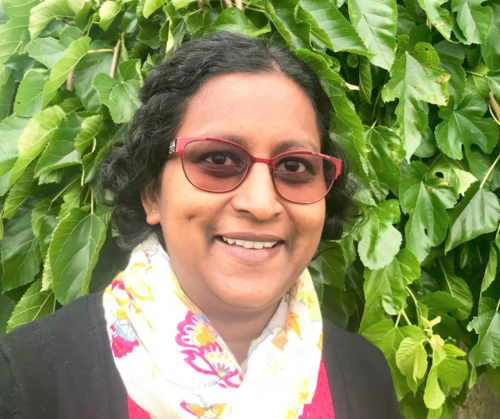
Dr. Madu Galappaththi’s research with the Environmental Change and Governance Group in the Faculty of Environment addresses a pressing real-world problem.
A major food source for people in the developing world is fish, and specifically dried fish. It globally accounts for some ten per cent of all harvested fish and forms a sub-sector within small-scale fisheries. Dried fish production, trading and distribution activities are largely organized as localized and community-embedded activities, especially in Asia and Africa.
However, the sustainability of dried fish activities is increasingly threatened because of factors such as the fierce competition for coastal resources from other sectors like large-scale commercial fisheries and tourism, as well as the impacts of climate change.
“The geographic focus of my work is on Sri Lanka and my research is looking at dried fish, a subsector that has rarely been studied,” Galappaththi says. “This subsector is in many ways hidden in the fisheries and food industry in general, but it makes significant contributions to coastal livelihoods, nutrition and wellbeing, especially for vulnerable people such as the poor and women.”
Despite the many threats, local fisheries and the dried fish subsector more specifically fall outside the purview of fisheries management, formal policies and development processes, which is something that also animates Galappaththi’s work.
“The overarching approach of my research is sustainability, but what motivates me the most is the possibility to use the findings of my study to make a meaningful contribution to protect and improve these systems.”
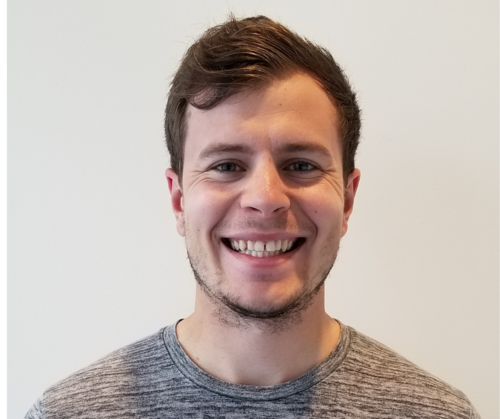
Dr. Mitchell Kay completed his doctorate through the Department of Biology, specifically within the specialized Collaborative Water Program through the Water Institute.
His research centres on the Peace-Athabasca Delta (PAD) in northern Alberta, which is the world’s largest boreal freshwater delta. For the past 50 years, there have been many unresolved concerns over the potential effects of major energy projects, climate change and reduced river discharge on lakes in the delta.
“My PhD research developed and applied paleolimnological approaches in the PAD to provide critically missing long-term information on contaminant deposition and drivers of hydroecological change via analysis of lake sediment cores,” Kay says.
Because the research essentially provides a window on the past, Kay describes his PhD research as “a form of time travelling.”
After completing his doctoral research, Kay has taken up an NSERC Postdoctoral Fellowship at McGill University in Montreal, where he is keen to continue his scholarly work. But having also done his undergrad studies at Waterloo, Kay says Waterloo will always be a special place for him.
“The University of Waterloo is full of people who want you to succeed and accomplish all your goals,” he says. “There is always someone willing to help no matter how big or small the problem, and they do it with a smile.”
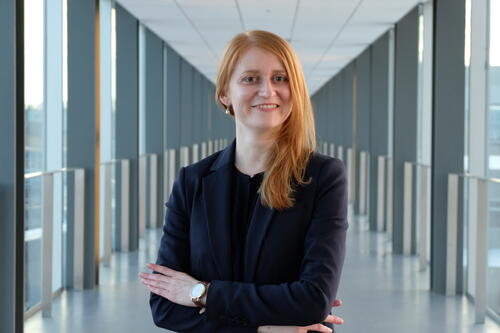
Dr. Jacqueline Noder recently completed a PhD in mechanical and mechatronics engineering. She previously did a master’s in engineering at Waterloo.
Noder’s research focuses on formability characterization and prediction with through-thickness strain and stress gradients. Her research interests extend to the practical application of sheet metal forming and machining.
“I’ve had a lot of support from all the people working in the machine shop, and I’ve worked closely with them,” Noder says. “They provide a lot of guidance and are so patient with all my requests. So, I really appreciate all the technologists. Experimental work plays a major role in my research and having people in the lab who can help you with equipment -- it’s so valuable.”
Noder says she took a somewhat unconventional route to her PhD studies and to engineering more generally. She was initially unsure that academic work was right for her, and says it was somewhat odd to be a female in engineering and especially in mechanical and industrial engineering.
But because of her own experience and different path to the university, Noder says she has a lot of empathy for students who may be uncertain of their direction or have difficulty adjusting.
“I’m passionate about teaching and mentoring undergraduate and co-op students,” she says. “The dynamic nature of the university, working with the students and the involvement through co-ops. It was a pleasure to be a part of it, and I’m looking forward to continuing my research.”
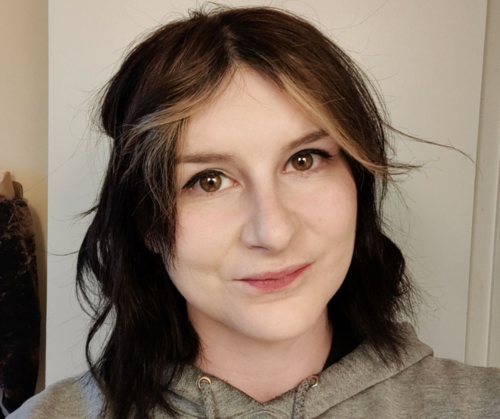
Dr. Kelly Ramsay recently completed a PhD in statistics. Before she had even taken her degree in hand at convocation, she started a new role as an assistant professor at York University.
“I worked mainly on data privacy and functional data, which is data where each observation is recorded over time, such as heart rates or functional MRIs,” she says. “In terms of privacy, I worked on differential privacy. Applying differential privacy generally means losing some accuracy in the data analysis, and my research was how we can quantify and minimize this loss of accuracy.”
Ramsay says that if she were to impart any wisdom to new PhD students, it would be to get involved with the community and find ways to do things other than just academic work.
“Have fun and try to make friends, because it makes the process a lot better,” she continues. “Taking breaks and doing other activities can reduce stress and increase your productivity.”
Ramsay found time for travelling and also enjoys weightlifting and video games, all of which helped keep her on track. Rather than being a distraction, having a life outside the university made her work all the more interesting and enlivening.
Now a professor, this rising academic star is sure to continue making waves in statistics.
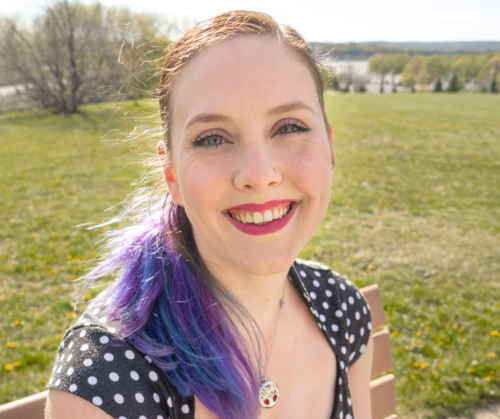
Dr. Lynne Sargent’s research focuses on what she defines as the “techno-inclusive model of disability,” which has practical application for how disabled people live their lives in digital and physical spaces.
Sargent completed a PhD in applied philosophy, a specialized program within the Department of Philosophy in the Faculty of Arts.
“It was important to me that my PhD research could have a practical element,” she says. “Sometimes people don’t think philosophy is practical, but our program is exactly that.”
More specifically, Sargent’s research is in applied ethics, which is interested in how values and morality shape experience and how people live and relate to one another. Her project studied the ways that technology impacts disability.
Analyzing the technological construction of disability shows what additional supports need to be made available and the way things can potentially be changed for the better.
“It’s not enough just to provide people with wheelchairs,” Sargent says. “Disabled people need to have access to screen-reading software, and older adults need access to apps that can help remind them to take their medications. And many of these things are left out of the discussion of disability and accessibility today. The way technology impacts inclusivity needs to be front and centre if accessibility is going to be authentic.”

Read more
Meet the ten inspiring individuals representing Waterloo’s newest grads

Read more
Star PhD graduates recount and reflect on their academic journeys

Read more
Faculty of Science student set for convocation and taking on new challenges
The University of Waterloo acknowledges that much of our work takes place on the traditional territory of the Neutral, Anishinaabeg, and Haudenosaunee peoples. Our main campus is situated on the Haldimand Tract, the land granted to the Six Nations that includes six miles on each side of the Grand River. Our active work toward reconciliation takes place across our campuses through research, learning, teaching, and community building, and is co-ordinated within the Office of Indigenous Relations.